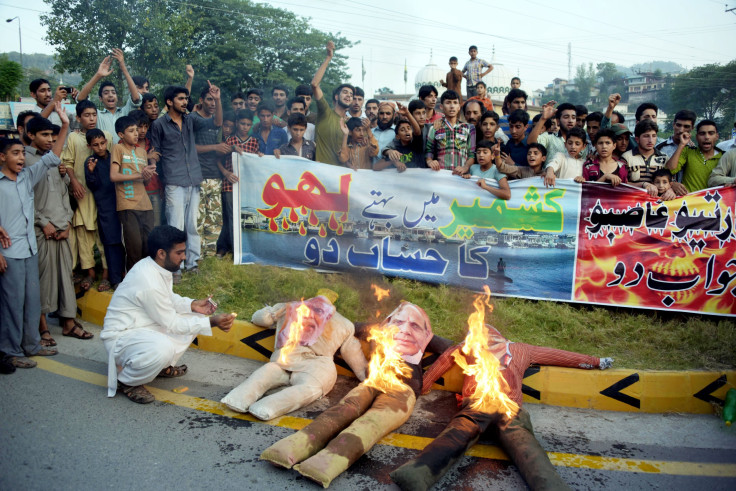India-Pakistan Conflict Update: With War Talk, Indian Bishops Call For Prayers For Peace

With no end in sight to the escalating hostility between neighbors India and Pakistan, Catholic bishops in India have called for prayers for peace in the contested area of Kashmir. The Himalayan region, which has been at the heart of two previous wars, has been the focus of tension in recent weeks. After an attack by militants on an Indian army base in Uri, India has claimed it responded with “surgical strikes” against targets based on the Pakistan side of the Line of Control that divides Kashmir.
“Today, which marks the feast day of Saint Francis of Assisi, let us pray for peace,” Cardinal Oswald Gracias, president of the Catholic Bishops’ Conference of India, told AsiaNews Tuesday. “I appeal for dialogue and cooperation between the two governments."
October is a holy month in both the Hindu and Islamic calendar, and the Bishops hope to use that time to find common ground by calling for a day of prayers Oct. 16.
“I invite all our countrymen and women of good will to join us in praying for the country,” added Cardinal Baselios Cleemis. “May every place of worship chime with prayers for our beloved nation.”
The governments of both countries have thus far shown little sign of backing down from their positions, with each refusing to rule out further military action. India continues to demand that Pakistan takes a stronger stand on terrorists in the country, which it also blames for the 2008 Mumbai terror attacks.
In recent days, gunfire has exchanged across the so-called Line of Control in Kashmir, fueling fears that the two nuclear powers could once again head to war. That is something that Archbishop Kuriakose Bharanikulangara of the northern Indian city of Faridabad has stressed must be avoided at all costs.
"It is time that reason and common good should prevail over emotion and retaliation,” he said. “Any thoughtless strike can lead to war with disastrous consequences for the country. We must abjure all talks of a war. Instead, it is imperative to strengthen the path of dialogue and diplomacy.”
The remarks from religious leaders follow the lead of many social media users in India and Pakistan who have participated in a campaign dubbed “Profiles for Peace, urging mutual understanding.
However, it is not only the governments of the two countries that have helped raise tensions. The Indian Motion Picture Producers’ Association recently banned Pakistan actors and technicians from working on Indian films, while Pakistan followed suit by announcing a ban on Bollywood films being screened in the country’s cinemas.
© Copyright IBTimes 2024. All rights reserved.











